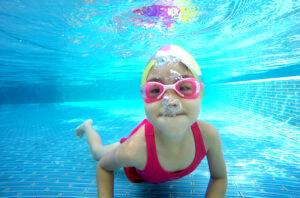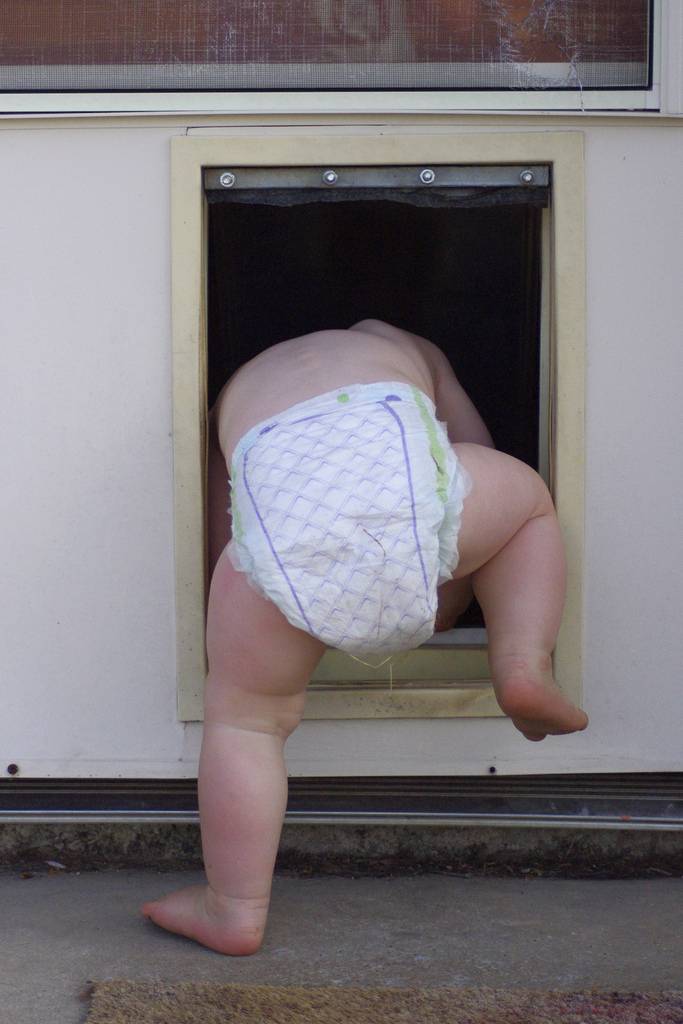Sports help kids and teenagers maintain physical fitness and gain self-confidence. While learning new skills, your children enjoy the excitement and camaraderie of sporting events.
However, injuries are inevitable, no matter what sport your child engages in. Parents, coaches, and medical professionals can greatly improve sports safety for children. This is where pediatric sports medicine comes in.
This article gives suggestions to prevent injuries among young athletes to keep sports safe and enjoyable. Learn how to keep them healthy and safe with the help of pediatric sports medicine.
Pediatric Sports Medicine: Why the Need?

Sports medicine is important, especially if you have an athletic child. A pediatric sports medicine specialist is a pediatrician who has had further training in sports medicine and is trained to handle your little athlete’s health condition.
Pediatric sports specialists are trained to examine, identify, and treat illnesses and injuries in active kids and teens. They treat musculoskeletal conditions or injuries to the bones, muscles, ligaments, tendons, and joints, which are different in growing children than in adults.
Thanks to pediatric sports medicine. It helps to improve your athletic child’s ability to exercise, participate in sports, or perform other activities. Your young athlete will have a happier, healthier, and safer active life!
How a Pediatric Sports Specialist Can Support Your Child’s Athletic Goals
When your kids engage in sports, they are likely to stay physically active throughout childhood and onwards to adulthood. The pediatric sports doctor can support your child’s athletic goals in many ways.
- Proper health coaching, includes nutrition, exercise, and other healthy habits.

- Advise on child safety and well-being during sports activities.
- Recommends age-appropriate sports to participate in.
- Advice that children should be judged by their sportsmanship and effort and rewarded for hard work and improving their skills instead of criticisms of losing.
- Treating sports-related injuries. They help identify, treat, and take care of musculoskeletal and medical issues.
Also, parents should encourage their children to participate in various sports to find out what they are most interested in while at the same time emphasizing proper sport-minded values. Parents work closely with their pediatric sports doctor.
The American Academy of Pediatrics emphasizes that kids should enjoy sports over winning as the end goal. Also, kids should engage in many kinds of sports to encourage enjoyment, thus avoiding injuries over time. This is the essence of pediatric sports.
Pediatric Sports: How to Prevent Injuries
Sports encourage kids to push their boundaries and develop a sense of sportsmanship and discipline. Your child is highly at risk of injury. Generally, the risk of a traumatic injury increases with the amount of physical contact during a sports activity.
Pediatric sports specialists caution young athletes against focusing on only one sport. It is best to participate in various sports to prevent the overuse of the same set of muscles, thus preventing injuries.
Use Safety Gear
Children must use the right tools and safety gear, plus the correct size and fit. For instance, they should always wear helmets when playing baseball, softball, biking, and hockey. Additionally, when using scooters, skateboards, or inline skating,
Ask your kid’s coach about the proper mouthguards, athletic cups, padding, and shoes. Ask about protective eyewear, such as shatterproof glasses, for racquet sports, field hockey, lacrosse, basketball, softball, and baseball.
Play on Safe Surfaces

Pediatric sports also involve ensuring that playing fields are free of ruts and holes that could cause children to trip or fall. Kids in high-impact sports like basketball run on surfaces like wooden courts rather than concrete, which can be more forgiving.
Have Adult Supervision
Trained adults should supervise any team sport or activity in which children participate. Select leagues and teams that share your dedication to safety and injury prevention. The coaching philosophy supports the players’ welfare. Also, first aid is required.
Ensure the coach strictly enforces the game’s rules and the use of safety gear. More importantly, pediatric sports ensure your kids participate in sports appropriate for their ability level, size, and emotional and physical maturity by working with the coach.
Be Prepared
Before engaging in a new sport, children should be familiar with safety precautions and general game rules. Warm-ups and stretching are done before practices. Plenty of liquids should also come in handy during practices.
All these promote fun activities, thus resulting in fewer injuries. By encouraging your kids to participate in sports suitable for their age, developmental stage, and physical capabilities, you significantly contribute to preventing common injuries in children.
Common Sports Injuries In Children
Pediatric sports emphasize the right equipment, and age-appropriate activities for children to engage in, following a doctor’s advice about when to resume sports after an injury, and avoiding overtraining, all of which can help prevent accidents.
Acute Injury
This happens when the kid trips and falls, gets struck by a ball or another object, or runs into another player. The severity of this case ranges from minor, such as a scratch or bruise, to serious, such as an eye injury or broken bone.
Overuse Injury
Also called repetitive stress injuries, these result from repeatedly performing the same action, which may hinder the growth of bones. The feet, knees, elbows, and shoulders are frequent sites of overuse injuries.
Reinjury
This happens when a player resumes their sports activity when a prior injury hasn’t fully recovered.
Pediatric Sports Promote Healthy Competition
Sports develop in young people not just physical strength but also character, self-esteem, and self-discipline. According to pediatric sports research, participating in athletic competitions helps kids develop emotionally and socially.
They acquire valuable skills like teamwork, pressure tolerance, and self-motivation, which are useful in the classroom or on the playing field. They also learn to deal with difficulty and recover from failure, two more crucial life skills.
Kids sometimes seem to have a more positive outlook on the value of winning than their parents and coaches. Never lose sight of amateur sports’ benefits for kids’ development and enjoyment.
Try to attend and watch as many games and practices as you can.
Even though kids won’t always admit it, they enjoy it when their mother waves to them proudly from the stands.
Actively work with your children to motivate them and improve their skills.
Your six-foot-four, eighteen-year-old will always remember the day he was scheduled to start in the division championships. When Dad or Mom allowed him to put on the catcher’s mitt to practice throwing his eighty-mile-per-hour curve ball,
Dad’s and Mom’s bruised shins and throbbing hands indicate that the memory will also stick with them for some time.
Motivate or congratulate your child for their efforts.
Children react better to praise for their efforts than to criticism for their flaws. When things don’t go well, your children need you the most. You’re your kid’s first best friend. So if they win or lose, give them positive feedback!
Don’t contest the sports officials when your child doesn’t win.
Respect for the game’s rules and authority is a crucial lesson that sports teach young people. Keep your opinions to yourself if you disagree with a referee’s decision or a coach’s decision to bench your child in favor of another player.
This is helpful to prepare your child for daily life—to learn how to accept decisions that seem unfair.
Monitor your child’s sports-related stress.
Stress is unavoidable before a significant athletic event. However, be watchful if you notice your child putting too much pressure on himself to succeed or taking failure personally. Aid your child in putting defeats into proper perspective.
Watch out for unhealthy techniques to perform better in sports.
Watch out for signs if your child uses performance-enhancing drugs or unhealthy weight-loss techniques. Pursuing excellence may go too far when your kid uses stimulants, anabolic steroids, or other prescription drugs that have physiological effects.
Your child can become seriously ill even if they don’t fully meet the diagnostic criteria for anorexia nervosa and bulimia nervosa. Inform your pediatrician immediately if you think your child is underweight or secretly abusing drugs.
Ultimately, the values that young people learn through sports reflect the attitudes of the adults in charge. Sports should be a positive experience, but when winning becomes more important than good sportsmanship, it becomes a negative one.

A culture emphasizing winning at all costs encourages young people to play through injuries. This mentality is discouraged since it doesn’t promote good sportsmanship.
People participating in or watching a sport should treat one another respectfully. Players, parents, coaches, and officials are all included.
How Your Child Could Be A Good Sport
There are many ways to be a good sport. Here are ten tips to instill in your child. One can:
- Accept a loss without whining or making excuses.
- Accept calls, and don’t argue with officials.
- Follow the rules of the game.
- Give your best effort.
- Have a positive attitude.
- Help another player who has fallen.
- Shake hands with the other team before and after the game.
- Support teammates by saying “good shot” or “good try.” Never criticize a teammate for trying.
- Take pride in winning but don’t rub it in.
- Childhood Bullying PrevalenceTreat the other team with respect and never tease or bully.
Get Your Kids into Sports
Experts advise finding ways to involve all children in organized sports, regardless of their skill level. Children remain physically active during childhood, reaping lifelong health benefits for their growing body, brain, and sense of self-worth.
Sports help with physical fitness and develop fundamental motor skills. You can help your kid gain confidence, learn the value of teamwork and sportsmanship, and develop leadership skills.
Children who play sports find exercise enjoyable and are more likely to develop lifelong exercise habits. An athletic kid is a happier and healthier kid, so encourage your kids to participate in sports today!
Omega Pediatrics shares parents’ advocacy to engage their children in sports. After all, we are partners in your child’s health and want them to fully enjoy their childhood through sports.



